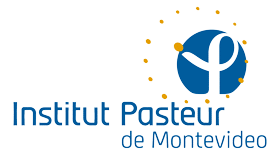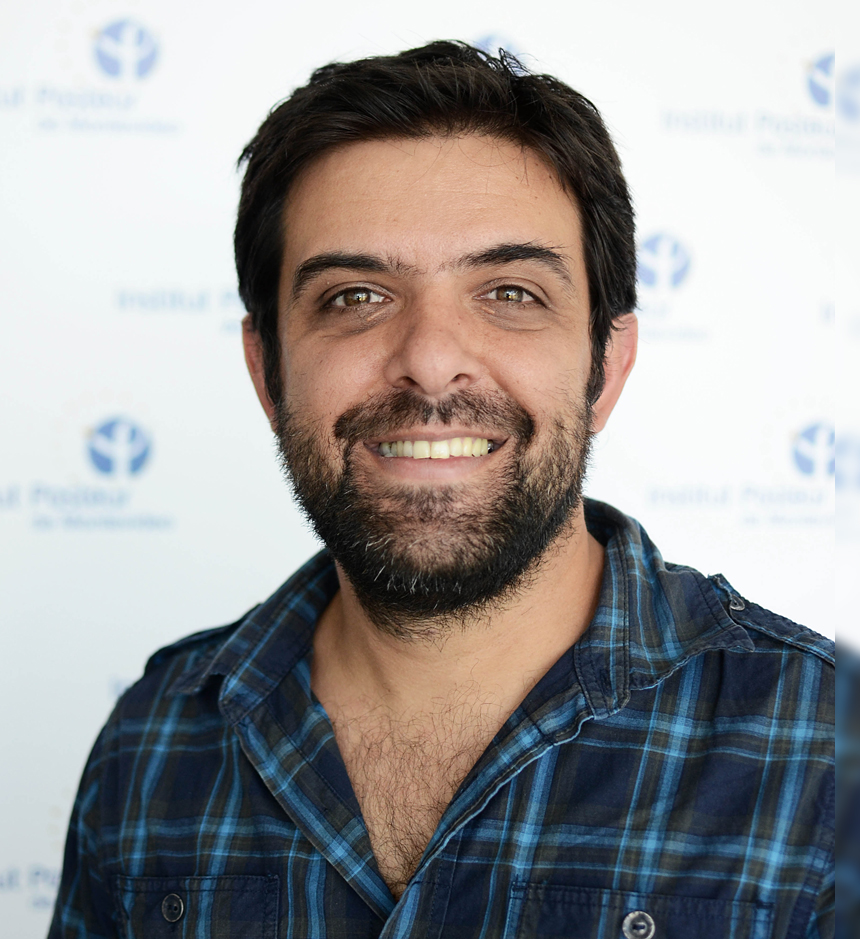INDICyO
Created in 2016, the Research in Diabetes, Inflammation, Cardiovascular Diseases and Obesity program (INDICyO) is a multidisciplinary initiative that brings together four laboratories of the institute to collaborate in the study of these chronic diseases.
These pathologies of metabolism —defined by the World Health Organization (WHO) as the XXI century epidemic— are associated with aging, poor eating habits and sedentary lifestyle. Its incidence has increased alarmingly in the last 60 years and is currently the leading cause of death in Uruguay and worldwide. Although these diseases are preventable —especially through the promotion of better life habits— it is important to develop new strategies that allow improving their prognosis.
At a biological level, since these diseases are characterized by a chronic inflammatory response in their molecular bases (like arterial hypertension and atherosclerosis, among others), it is key to understand the mechanism that could lead to the development of alternative therapies, whether at the pharmacological or genetic. It is also important to collaborate in the design of public health strategies that improve the incidence and prognosis of these diseases in Uruguay.
The program aims to place the Institut Pasteur de Montevideo as themain biomedical research center for these diseases in Uruguay, bringing together in-house researchers and experts from other national and international academic institutions that also work on these issues. In addition, within the International Network of Pasteur Institutes (RIIP), IP Montevideo also seeks to strengthen its position to become a reference in this area.
Members
Projects
TMEM176b: a new regulator of inflammation and insulin resistance during obesity. Co-PI: Marcelo Hill (LIRI). International funds and own resources.
Role of FSTL1 in the regulation of adipogenesis and adipose tissue function during obesity. Co-PI: José Badano (GMH). Funded by own resources. International grant (ADA, USA).
Evaluation of new anti-inflammatory compounds for the treatment of metabolic diseases. Co-PI: Carlos Batthyány (UBYPA). Funded by a private international company.
Since its creation, the program has achieved the following milestones:
- Four doctoral students and two master students share advisors among INDICYO members and develop collaborative research projects.
- Two research projects with international financing and three with funding from the institute.
- Weekly seminars with PI and students for documents and results discussions.
- Two patents and one document presented.
Main equipment
Facilities
- Bioterium: SPF (specific pathogen free) and Conventional
- Microinjection Laboratory
- Assisted Reproduction Techniques Laboratory (ART)
- Molecular Biology Laboratory
Services
- Generation of transgenic animals using: CRISPR / Cas9 technology, pronuclear microinjection of DNA fragments, gene-targeting in embryonic stem cells, Sleeping Beauty Transposons technology.
- Cryopreservation of embryos and sperm.
- Rederivation of murine lines.
- In vitro fertilization of murine lines.
- Crosses and maintenance under SPF and conventional conditions of various strains mice (C57BL / 6J, BALB / cJ, DBA / 2J, Nude, several hybrids and about 30 different transgenic lines). Approximate production (currently): 2.000 mice per month.
- Immunomodulatory capacity assays of probiotic bacteria.
- Biological activity assays of recombinant erythropoietin. Our Bioterio is certified by the Ministry of Public Health.
- Toxicity tests for biotechnological products (EPO, Filgen, Interferon).
- Production of polyclonal antibodies in mice.
Training
We offer training in:
- Techniques for the production of transgenic animals and assisted reproduction.
- Management of BSL2 pathogens in experimental procedures.
For further information, please contact ubal@pasteur.edu.uy
Courses
- CARD-IP Montevideo Practical course: Cryopreservation of embryos and murine sperm. Sept. 10-13, 2018. Institut Pasteur Montevideo. Funded by: UNI-Biolac and IP Montevideo. Supported by: CARD and Kumamoto University.
- “Alternative Methods to the Use of Experimental Animals: In vitro evaluation of irritation (TG 439) and skin sensitization (TG 442E)”. May 21-24, 2018. Institut Pasteur de Montevideo. Funded by: Premasul and L’Oréal. Supported by: Protemca, Aucytal, CNEA.
- “Theoretical-Practical Course of Laboratory Animals”. March 13-21, 2017. 19 national and one international speakers, and 21 national students. Supported by FOCEM and PEDECIBA.
- “Integrating IP Montevideo technologies”. Internal course of the IP Montevideo. October 2017.
- “TRANSGENIC TECHNOLOGIES in MODELING HUMAN DISEASES: Principles, Associated technologies, Animal Management and Ethics”. – June 2017, Athens, Greece. Co-organizers.
- “Theoretical-practical course of laboratory animals”, authorized for B-technical accreditation by the CNEA. April 4-12, 2016.
- International course and symposium “ADVANCES IN THE GENERATION OF GENETICALLY MODIFIED (GM) ANIMAL MODELS – International Mini Symposium: TRANSGENIC TECHNOLOGIES, THE LATEST TRENDS”. September 2015.
- “Management, techniques of substance administration and sampling in mice”. Internal course for 20 researchers who use mice in the IP Montevideo Animal Facility. 2012-2015. 2012-2015.
- International course “Genetics of laboratory rodents”. December 2008 and 2011. Co-organizer with the Functional Genetics Unit of the Institut Pasteur de Paris.
Main publications
vacio
2018
- 1. Meikle MN, Schlapp G., Menchaca A., Crispo M. Minimum volume spatula MVD vitrification method improves embryo survival compared to traditional slow freezing, both for in vivo and in vitro produced mice embryos. Cryobiology.
- 2. Barrera N, Dos Santos Neto PC, Cuadro F, Bosolasco D, Mulet AP, Crispo M, Menchaca A. Impact of delipidated estrous sheep serum supplementation on in vitro maturation, cryotolerance and endoplasmic reticulum stress gene expression of sheep oocytes. PLoS One 13(6). (hyperlink en el t{itulo del art{iculo_ https://www.ncbi.nlm.nih.gov/pubmed/29912910)
2017
- 1. dos Santos-Neto P.C., Cuadro F., Barrera N., Crispo M., Menchaca A. 2017. Embryo survival and birth rate after minimum volume vitrification or slow freezing of in vivo and in vitro produced ovine embryos. Cryobiology. 78(8): 14.
- 2. Menchaca A., Schlapp G., Meikle M.N., Crispo M. 2017. Transgenesis and Gene Edition in Mammals. Reference Module in Life Sciences. Elsevier. V.1: 1-9 pp (Book chapter).
- 3. Menchaga A., AP Mulet, P. Dos Santos Neto, M. Crispo 2017. Transgenesis and Gene Edition in Small Ruminants. Revista Brasileira de Reprodução Animal, v.: 41 1, 2017
- 4. Mulet AP, Perelmuter K, Bollati-Fogolin M, Crispo M, Grompone G. 2017. Forkhead Box Protein O1 is Linked to Anti-Inflammatory Probiotic Bacteria Acting through Nuclear Factor-κB Pathway. J Microb Biochem Technol Volume 9(3):074-081
2016
- 1. A. MENCHACA; I. ANEGóN; B. WHITELAW; H. BALDASSARRE; M. CRISPO- New insights and current tools for genetically engineered (GE) sheep and goats. Theriogenology, p.: 1 – 10, 2016.
- 2. • A. MENCHACA; N. BARRERA; P. DOS SANTOS-NETO; F. CUADRO; M. CRISPO. Advances and limitations of in vitro embryo production in sheep and goats. Animal Reproduction, v.: 13 3, p.: 273 – 278, 2016.
2015
- 3. Crispo M, Mulet AP, Tesson L, Barrera N, Cuadro F, dos Santos-Neto PC, Nguyen TH, Crénéguy A, Brusselle L, Anegón I, Menchaca A. Efficient Generation of Myostatin Knock-Out Sheep Using CRISPR/Cas9 Technology and Microinjection into Zygotes. PLoS One. 2015 Aug 25;10(8):e0136690. doi: 10.1371/journal.pone.0136690
- 4. Schlapp G, Goyeneche L, Fernández G, Menchaca A, Crispo M. Administration of the nonsteroidal anti-inflammatory drug tolfenamic acid at embryo transfer improves maintenance of pregnancy and embryo survival in recipient mice. J Assist Reprod Genet. 2015 Feb;32(2):271-5. doi: 10.1007/s10815-014-0378-x. Epub 2015 Jan 6.
- 5. P. DOS SANTOS; M. VILARIÑO; N. BARRERA; F. CUADRO; M. CRISPO; A. MENCHACA. Cryotolerance of Day 2 or Day 6 in vitro produced ovine embryos after vitrification by Cryotop or Spatula methods. Cryobiology, v.: 70, p.: 17 – 22, 2015.
2014
- 6. Crispo M, Vilariño M, dos Santos-Neto PC, Núñez-Olivera R, Cuadro F, Barrera N, Mulet AP, Nguyen TH, Anegón I, Menchaca A. Embryo development, fetal growth and postnatal phenotype of eGFP lambs generated by lentiviral transgenesis. Transgenic Res. 2015 Feb;24(1):31-41. doi: 10.1007/s11248-014-9816-x. Epub 2014 Jul 22.
2013
- 7. Crispo M, Van Maele L, Tabareau J, Cayet D, Errea A, Ferreira AM, Rumbo M, Sirard JC. Transgenic mouse model harboring the transcriptional fusion ccl20- luciferase as a novel reporter of pro-inflammatory response. PLoS One. 2013 Nov 12;8(11):e78447. doi: 10.1371/journal.pone.0078447.
- 8. M. CRISPO; SCHLAPP G; CÁRDENAS M; D. GONZÁLEZ-MACIEL; M RUMBO. Optimization of transgenesis conditions for the generation of CXCL2-luciferase reporter mice line. EJB Electronic Journal of Biotechnology, v.: 16 6, 2013.
2010
- 9. A. MENCHACA; M. VILARIÑO; M. CRISPO; DE CASTRO T; E RUBIANES. New approaches to superovulation and embryo transfer in small ruminants. Reproduction Fertility and Development, v.: 22 1, p.: 113 – 118, 2010.
2007
- 10. A. MENCHACA; M VILARIÑO; M. CRISPO; A PINCZAK; E RUBIANES. Day 0 Protocol: superstimulatory treatment initiated in absence of a dominant follicle improves ovarian response and embryo yield in goats. Theriogenology, v.: 68, p.: 1111 – 1117, 2007.

